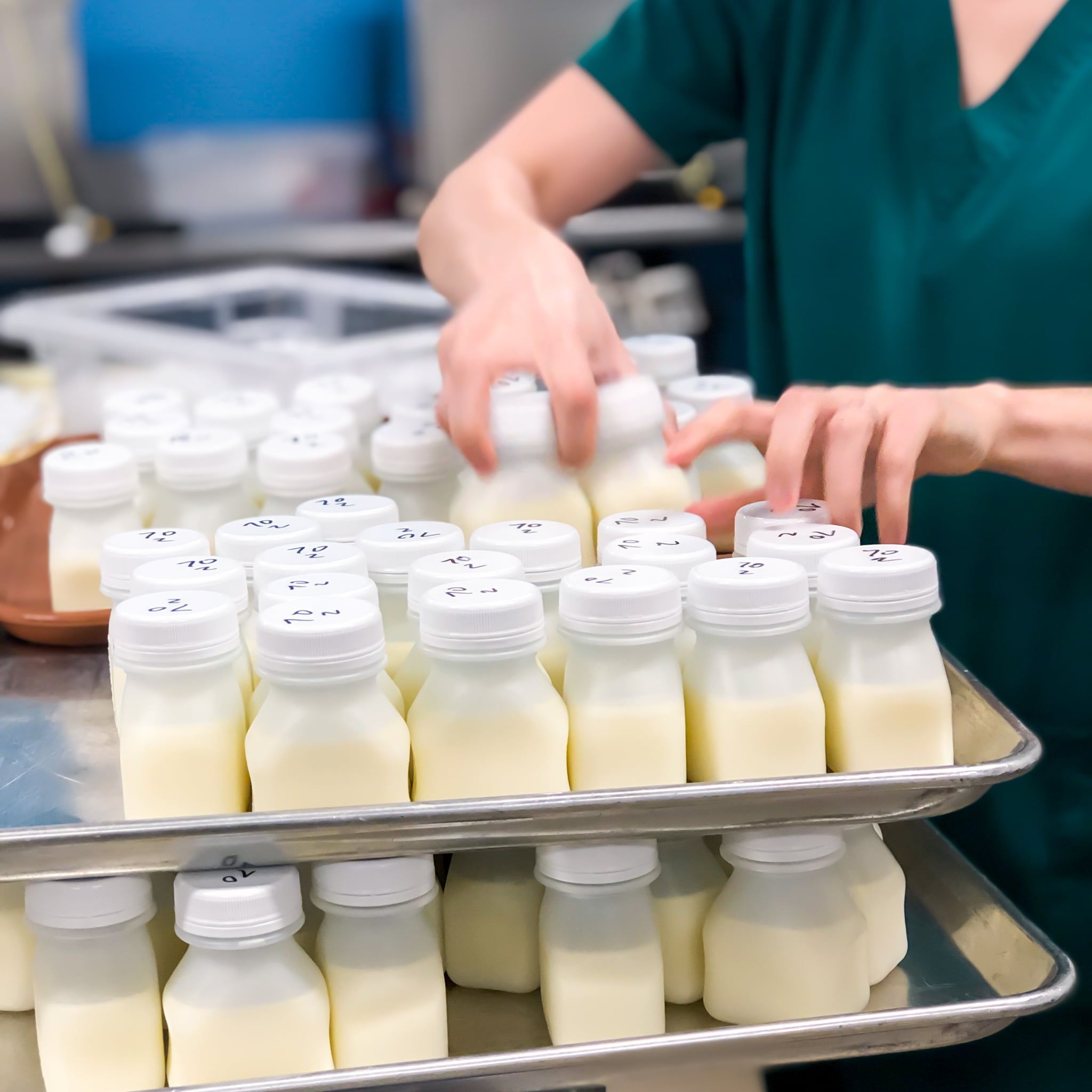Use of donor human milk
Note: The FDA policy on donor human milk was created after the FDA organized a day-long testimony in December of 2010 during which representatives from HMBANA, Prolacta, and the informal milk sharing world all gathered to share details of the industry’s science and best practices. Since then, the FDA has made routine inspection visits to milk banks, holding them to the Good Manufacturing Practices standards.
The benefits of breastfeeding are well established, and breastfeeding is strongly recommended by healthcare professionals and the U.S. Department of Health and Human Services. Information on breastfeeding can be found at:
- HHS Breastfeeding
- CDC Breastfeeding
- USPSTF 2014 Guide to Clinical Preventive Services on Breastfeeding Counseling
- American Academy of Pediatrics Guidelines
In some situations, instead of breastfeeding parents may look for alternative sources of human breast milk to feed their babies.
Consult a healthcare provider first
The choice to feed a baby human milk from a source other than the baby’s mother should be made in consultation with the baby’s healthcare provider, because the nutritional needs of each baby depend on many factors including the baby’s age and health.
Consider the possible safety risks
If you are considering feeding a baby with human milk from a source other than the baby’s mother, you should know that there are possible health and safety risks for the baby. Risks for the baby include exposure to infectious diseases, including HIV, to chemical contaminants, such as some illegal drugs, and to a limited number of prescription drugs that might be in the human milk, if the donor has not been adequately screened. In addition, if human milk is not handled and stored properly, it could, like any type of milk, become contaminated and unsafe to drink.
FDA recommends against feeding your baby breast milk acquired directly from individuals or through the Internet
When human milk is obtained directly from individuals or through the Internet, the donor is unlikely to have been adequately screened for infectious disease or contamination risk. In addition, it is not likely that the human milk has been collected, processed, tested or stored in a way that reduces possible safety risks to the baby.
FDA recommends that if, after consultation with a healthcare provider, you decide to feed a baby with human milk from a source other than the baby’s mother, you should only use milk from a source that has screened its milk donors and taken other precautions to ensure the safety of its milk.
There are human milk banks that take voluntary steps to screen milk donors, and safely collect, process, handle, test, and store the milk. In a few states, there are required safety standards for such milk banks. FDA has not been involved in establishing these voluntary guidelines or state standards.
For more information visit the Human Milk Banking Association of North America (HMBANA), a voluntary professional association for human milk banks. HMBANA issues voluntary safety guidelines for member banks on screening donors, and collecting, processing, handling, testing and storing milk.


